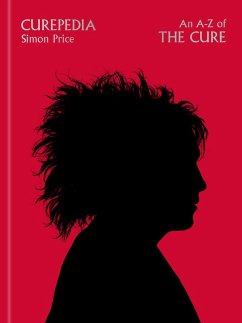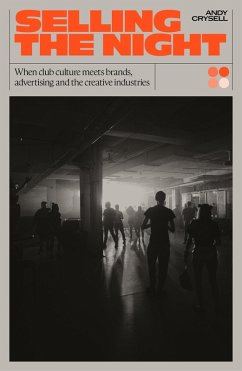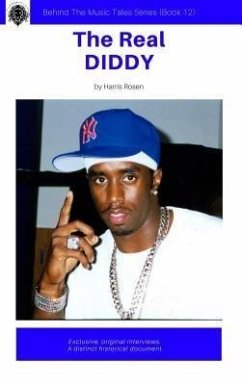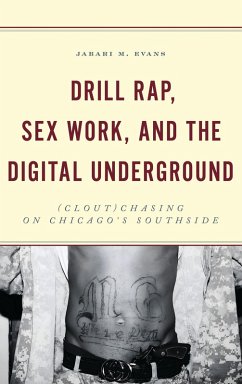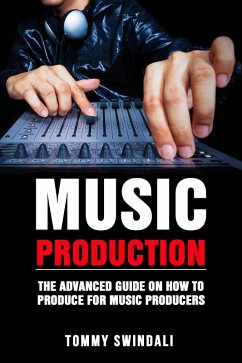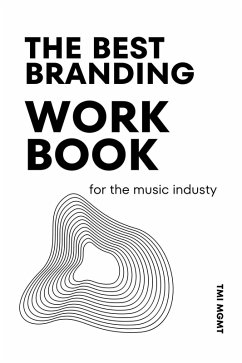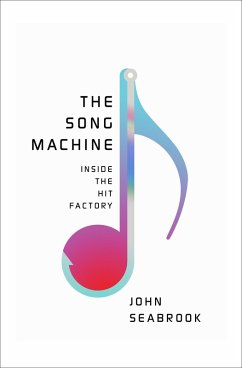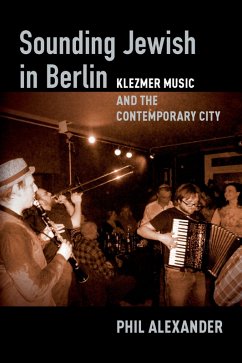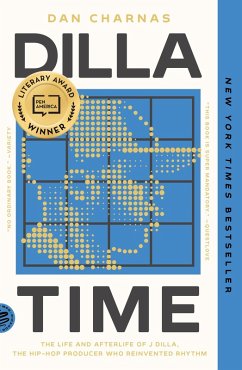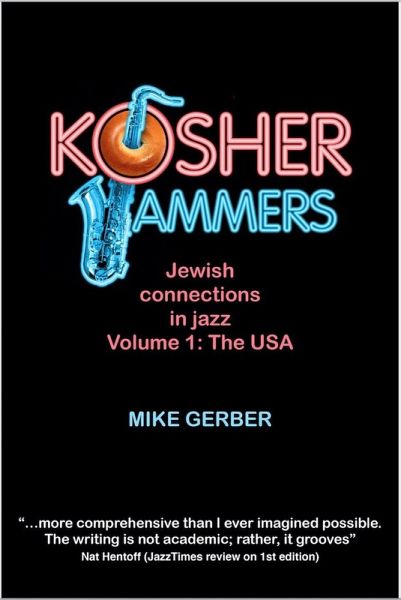
Kosher Jammers: Jewish connections in jazz Volume 1 - the USA (eBook, ePUB)

PAYBACK Punkte
0 °P sammeln!
"An assured and informative book that opens up discussion on Jews in jazz while never denying the centrality of African-American ancestry " -- Jazzwise"Gerber is a profoundly original writer ... His text is not only serious scholarship, but informal, conversational and full of surprises. This makes his interviews with musicians, record company bosses, musicians' managers, impresarios and jazz festival organisers speak with the exigencies of real life ... if you love jazz or even have little more than a marginal interest in it, you will not want to put his book down" -- Chris Searle, Morning St...
"An assured and informative book that opens up discussion on Jews in jazz while never denying the centrality of African-American ancestry " -- Jazzwise
"Gerber is a profoundly original writer ... His text is not only serious scholarship, but informal, conversational and full of surprises. This makes his interviews with musicians, record company bosses, musicians' managers, impresarios and jazz festival organisers speak with the exigencies of real life ... if you love jazz or even have little more than a marginal interest in it, you will not want to put his book down" -- Chris Searle, Morning Star jazz critic
"A mightily comprehensive overview of the influence of Jews in jazz" -- Howard Mandel, president - Jazz Journalists Association
Jews have been a major presence in America's jazz, as musicians and as jazz facilitators, and in Kosher Jammers: Jewish Connections in Jazz - The USA, Gerber tells that story with ethnomusicological rigour but with a feature writer's creative flair.
Besides drawing on a plethora of second-hand sources, Kosher Jammers is absolutely packed with first-hand material, from interviews, phone calls and emails with jazz figures, Jewish and otherwise - including possibly the last ever interview with swing era icon Artie Shaw. Among the many other interviewees are black jazz figures such as saxophonist Buddy Collette and the critic Stanley Crouch, as a key theme running through the book is the relationship between Jews and African Americans in jazz.
The impact on jazz of tunes written by Jewish "Great American Songbook" composers such as George Gershwin, Harold Arlen and Johnny Green is also covered, And the book features an extensive study of the Jewish-jazz phenomenon, whereby musicians from Ziggy Ellman in the 1930s to contemporary artists, notably John Zorn, have sought to create jazz that draws on Jewish music influences and themes. Gerber drives home the point that, even had there never been a single Jewish jazz musician, Jews will still have contributed massively to the development of jazz in the United States, as managers, impresarios, venue owners, label founders, writers and such.
"Gerber is a profoundly original writer ... His text is not only serious scholarship, but informal, conversational and full of surprises. This makes his interviews with musicians, record company bosses, musicians' managers, impresarios and jazz festival organisers speak with the exigencies of real life ... if you love jazz or even have little more than a marginal interest in it, you will not want to put his book down" -- Chris Searle, Morning Star jazz critic
"A mightily comprehensive overview of the influence of Jews in jazz" -- Howard Mandel, president - Jazz Journalists Association
Jews have been a major presence in America's jazz, as musicians and as jazz facilitators, and in Kosher Jammers: Jewish Connections in Jazz - The USA, Gerber tells that story with ethnomusicological rigour but with a feature writer's creative flair.
Besides drawing on a plethora of second-hand sources, Kosher Jammers is absolutely packed with first-hand material, from interviews, phone calls and emails with jazz figures, Jewish and otherwise - including possibly the last ever interview with swing era icon Artie Shaw. Among the many other interviewees are black jazz figures such as saxophonist Buddy Collette and the critic Stanley Crouch, as a key theme running through the book is the relationship between Jews and African Americans in jazz.
The impact on jazz of tunes written by Jewish "Great American Songbook" composers such as George Gershwin, Harold Arlen and Johnny Green is also covered, And the book features an extensive study of the Jewish-jazz phenomenon, whereby musicians from Ziggy Ellman in the 1930s to contemporary artists, notably John Zorn, have sought to create jazz that draws on Jewish music influences and themes. Gerber drives home the point that, even had there never been a single Jewish jazz musician, Jews will still have contributed massively to the development of jazz in the United States, as managers, impresarios, venue owners, label founders, writers and such.
Dieser Download kann aus rechtlichen Gründen nur mit Rechnungsadresse in A, B, CY, CZ, D, DK, EW, E, FIN, F, GR, H, IRL, I, LT, L, LR, M, NL, PL, P, R, S, SLO, SK ausgeliefert werden.




